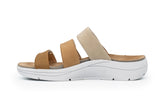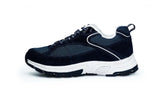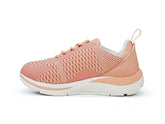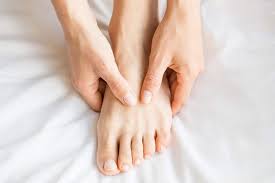Skin sensitivity and pain can be challenging to manage, especially when it affects everyday activities such as walking or wearing shoes. This article delves into the causes of skin sensitivity, how it can be managed, and the role of supportive footwear in alleviating discomfort.
 What Causes Skin Sensitivity and Pain?
What Causes Skin Sensitivity and Pain?
Skin sensitivity occurs when the skin reacts excessively to various stimuli, such as touch, temperature changes, or certain fabrics. This condition can result in pain, redness, and discomfort, making daily activities more challenging.
Common Causes
There are several common causes of skin sensitivity, including:
-
Allergies: Reactions to certain substances, such as soaps, detergents, or fabrics, can cause skin sensitivity and pain.
-
Eczema and Dermatitis: These skin conditions lead to inflammation, causing the skin to become red, itchy, and sensitive.
-
Neuropathy: Nerve damage, often due to diabetes or other medical conditions, can result in skin sensitivity and pain, sometimes described as the skin being painful to touch.
 Managing Skin Sensitivity and Pain
Managing Skin Sensitivity and Pain
Effectively managing skin sensitivity involves identifying triggers and taking steps to reduce exposure to them. Here are some strategies to consider:
Identifying Triggers
Understanding what causes your skin sensitivity is crucial for managing it. Keep a diary of your symptoms and any potential triggers to help identify patterns.
Skin Care Routine
Adopting a gentle skin care routine can help minimise irritation:
-
Use mild, fragrance-free products: Harsh chemicals and fragrances can exacerbate skin sensitivity.
-
Moisturise regularly: Keeping the skin hydrated can help maintain its barrier function and reduce sensitivity.
-
Avoid hot showers: Hot water can strip the skin of its natural oils, increasing sensitivity.
Medical Treatments
If skin sensitivity and pain persist, consult a healthcare professional. They may recommend treatments such as topical creams, medications, or therapies to help manage the symptoms.
The Role of Supportive Footwear
For individuals experiencing skin sensitivity and pain, particularly on the feet, choosing the right footwear is essential. Supportive shoes can alleviate discomfort and prevent further irritation.
Importance of Supportive Shoes
Supportive shoes provide stability, cushioning, and protection, which can be particularly beneficial for those with sensitive skin or neuropathy. Here's what to look for in supportive footwear:
-
Cushioning: Adequate cushioning reduces pressure on sensitive areas, making walking more comfortable.
-
Arch Support: Proper arch support helps distribute weight evenly, reducing strain on the feet.
-
Breathable Materials: Shoes made from breathable materials help prevent sweating and irritation.
Neuropathy Shoes
For individuals with neuropathy, specialised shoes can offer additional benefits. Neuropathy shoes are designed to accommodate sensitive skin and provide extra protection against injury.
Features of Neuropathy Shoes
-
Extra Depth: Allows for orthotic inserts and reduces pressure on sensitive areas.
-
Seamless Interior: Minimises friction and irritation.
-
Wide Toe Box: Provides ample space for toes, reducing pressure and discomfort.
Living with Skin Sensitivity and Pain
Living with skin sensitivity and pain requires a proactive approach. By understanding the causes and implementing strategies to manage symptoms, individuals can improve their quality of life.
Lifestyle Adjustments
Making small adjustments to your daily routine can help manage skin sensitivity:
-
Wear Soft, Loose Clothing: Choose clothing made from soft, breathable fabrics to minimise irritation.
-
Manage Stress: Stress can exacerbate skin sensitivity, so practicing relaxation techniques can be beneficial.
-
Stay Hydrated: Drinking plenty of water helps maintain skin health.
Support Networks
Connecting with others who experience similar challenges can provide support and valuable insights. Consider joining support groups or online forums dedicated to skin sensitivity and neuropathy.
Conclusion
Understanding skin sensitivity and pain is the first step in managing these conditions effectively. By identifying triggers, adopting gentle skin care practices, and choosing appropriate footwear, individuals can reduce discomfort and improve their daily lives. Whether dealing with general skin sensitivity or specific conditions like neuropathy, the right approach can make all the difference.








